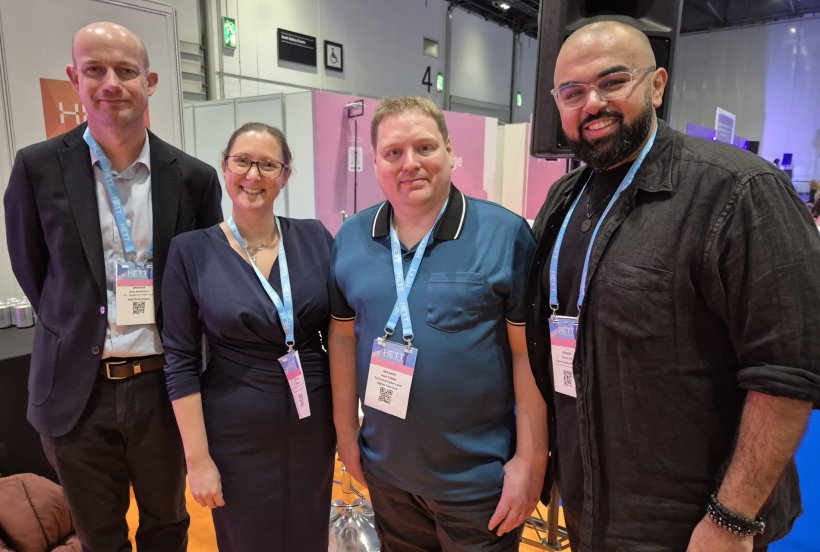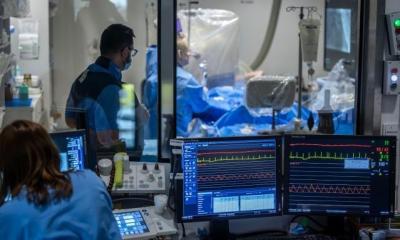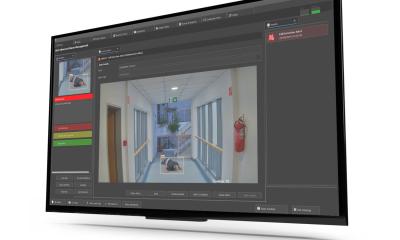
Photo: Mark Nicholls
Article • Security’s double-edged sword
Building cyber resilience in the age of AI
Artificial intelligence (AI) is transforming healthcare, but it also introduces new cybersecurity risks that challenge IT teams. While AI streamlines diagnosis and workflow, cybercriminals are leveraging the same technology to infiltrate hospital systems. Experts addressed these emerging threats and strategies for resilience during the ‘Maximising What You Have for Cyber Resilience – Ask the Experts’ forum at HETT25 in London.
Author: Mark Nicholls
AI is a clear threat, particularly with deep faking with individuals potentially creating false personas to gain access or information.
Chairing the interactive open forum session, Gary McAllister, Chief Technology Officer (Healthcare & Public Sector) for Dell Technologies, said having the right level of checks to counter deep fakes is critical.
Asked how to combat these threats, potentially by using AI as a counter, the Digital Care Hub’s Technical Cyber Lead Sam Cattell acknowledged: ‘We seem to be one step behind and reacting to AI when we should be using AI and looking into the future.’
While AI can help combat deep fakes, he points to human behaviour, awareness and strong passwords as basic but effective steps.
It is only a matter of time before [Deep Fake tech] is used maliciously, so we need to be ahead of the curve
Nasser Arif
With increased risk from AI and Deep Fakes, London Northwest Healthcare Trust’s cyber security manager Nasser Arif said dialogue with vendors is important as many have specific tools to tackle threats.
He also warned of taking thins too lightly: ‘We know Deep Fake tech is being used for humour and entertainment at the moment but it is only a matter of time before it is used maliciously, so we need to be ahead of the curve.’
Cyberpsychology expert Professor Linda Kaye from Edge Hill University in Lancashire suggested AI could be used in selection and recruitment processes, alongside psychometric tests. ‘As those tools draw on people’s online data and behaviour, we can understand a lot more accurately about people from their online behaviour rather than the way they might respond to psychometric test,’ she said.
AI, added Kaye, could have a role in better detecting where there might be potential dangers and threats in future employees behaviors ‘before people are recruited rather than testing while in the organisation.’
Recommended article

Article • Digital resilience
Healthcare cybersecurity: from basics to best practices
Building resilience for digitally driven healthcare: At the HETT (Healthcare Excellence Through Technology) North conference in Manchester, leading IT specialists highlighted the need for high levels of education, awareness and vigilance among healthcare staff in the fight to protect systems against cyberattack.
Arif said it was important to remember the tremendous pressure IT teams work under during a cyber attack. ‘With the number of incidents increasing, we should remember that cyber security and IT professionals are humans, so reach out to them and ask how they are doing.’
Kaye underlined the importance of pastoral and human support, particularly for those who may have made a mistake leading to an incident, while Cattel said a ‘blameless culture is absolutely vital.’
McAllister said business continuity plans that are more than an ‘interim response plan’ are crucial as major attacks can take a significant amount of time to recover from. Speaking of his experience with Synnova while at Guy’s and St Thomas’ Hospital which compromised healthcare in south London for several months, he said: ‘We often forget that cyber incidents become crime scenes which require forensic investigation meaning you lose a lot of your infrastructure for a prolonged period of time.’
People might have technical skills and understand cybersecurity risks but if they do not have a positive attitude around implementing them, that is equally a risk
Linda Kaye
Support for health organisations affected by cyber attack is available through the NHS Cyber Security Operations Centre (CSOC) and the CAF (Cyber Assessment Framework) to help organisations assess and improve their cyber security and resilience. The value of PEN (penetration) testing was also discussed, with authorised simulated attacks to raise alertness and staff training and awareness of cyber attack, as well as audits and cyber security ‘health checks’. ‘It goes back to making sure we are adapting with the times,’ explained Arif. ‘In the NHS we have regular penetration tests and must make sure we tailor those to the latest threats.’
Kaye, who pointed to employee attitude and risk aversiveness assessment, added: ‘People might have technical skills and understand cybersecurity risks but if they do not have a positive attitude around implementing them, that is equally a risk.’
The issue of funding levels was raised and Cattel said increases were needed both in the public and in the private sector to upgrade technology in the face of increased cyber risk. However, Arif said investment requests should be honest, as existing solutions often make new purchases unnecessary. ‘There are improvements you can make which cost nothing,’ he suggested. ‘Cyber awareness is a classic example where there is a lot you can do with existing tools.’ That included bringing in equipment suppliers to look at upgrades, new tools, or ways of utilising the technology. ‘You may find you are probably using the product the same way you were using it three years ago,’ he added, ‘but the threat landscape has completely changed in that time.’
Profiles:
Gary McAllister is Chief Technology Officer (Healthcare & Public Sector) for Dell Technologies. He previously worked in the NHS, including at Guy’s and St Thomas’ Hospital in London.
Nasser Arif is cyber security manager for London Northwest Healthcare Trust and Hillingdon Hospital Healthcare Trust, managing the cyber team and incident response and is passionate about the human element of cyber security.
Linda Kaye is a Professor of Psychology and Associate Head in the Department of Psychology at Edge Hill University in Lancashire. Her expertise is in cyberpsychology, the psychology of technology use and online behaviour.
Sam Cattell is Technical Cyber Lead at Digital Care Hub and a former hacker. He has previously worked for the NHS and in the police but now has a role within social care.
20.11.2025





